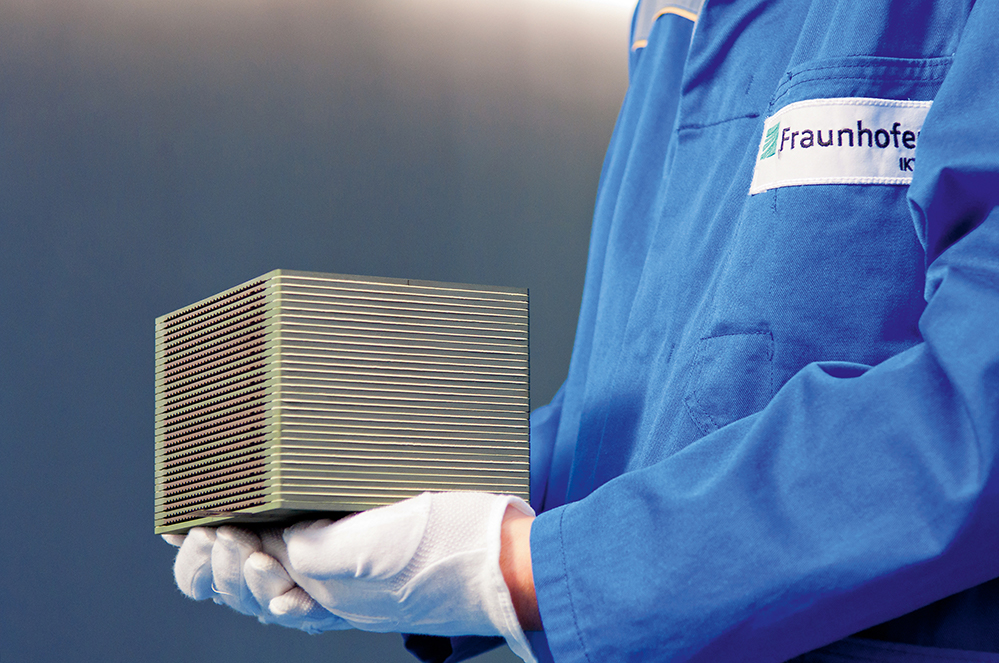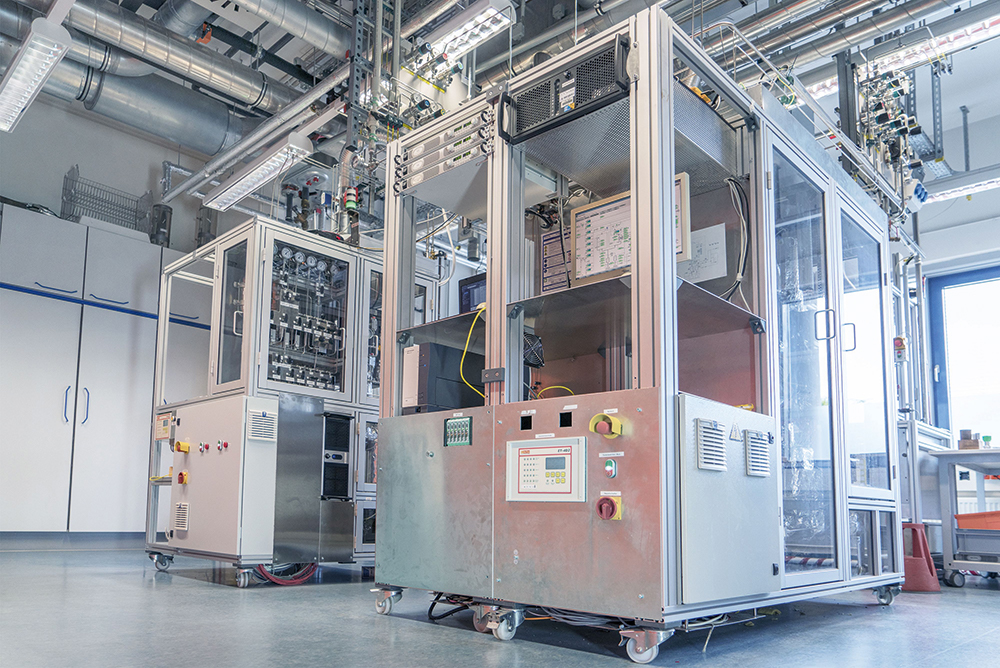

While a reduction in carbon dioxide emissions has been achieved in the energy sector through the incipient use of hydropower, wind power, photovoltaics and geothermal energy, the amount of CO2 emitted from the transport sector has remained almost constant or has even increased further. Electric cars are already making an important contribution to reducing greenhouse gases in urban and short-distance traffic. However, as things stand today, there will also be niche applications in the future that require liquid fuels, such as aviation and heavy-duty traffic, special construction and large machinery, and a part of rail traffic. The share of electrified rail lines in Germany was only 60 % in 2017. Large territorial states, such as the USA or Canada, even have significantly lower shares of electrified lines, in some cases less than 10 %. Synthetic, CO2-neutral fuels (e-fuels) are therefore a promising solution for the transport sector.
As part of the "ESyRE" project, an efficient process chain for the synthesis and reconversion of diesel via SOFC fuel cells will be investigated and demonstrated at a pilot plant. The synthetic fuel is produced via high-temperature electrolysis in a power-to-liquid process for use in engines. The synthetic fuel is converted back into electricity in a fuel cell system (SOFC-APU). In addition to CO2 emission-free fuel production, an increase in efficiency in the overall consumption of heavy-duty transport and, in the example of diesel locomotives, a significant reduction in CO2 and pollutant emissions can thus be achieved. In addition to the development and optimization of the technology, a techno-economic evaluation, an environmental and overall impact analysis as well as a consideration of the acceptance of the new processes will be carried out.
The aim of Fraunhofer IKTS in the "ESyRE" project is to further develop its SOFC stack technology in terms of current density and long-term stability for use in fuel cell and electrolysis operations. Furthermore, the researchers want to increase the material and energy efficiency of the power-to-liquid process by optimizing the Fischer-Tropsch catalysts. In addition to the technical developments, Fraunhofer IKTS is also conducting a techno-economic evaluation of the new technologies.
Project name: Efficient synthesis and reconversion of e-fuels: ESyRE
Funding code: 03EN5003B
Project management agency: Forschungszentrum Jülich GmbH (PT-J.ESN5)
Funding: Federal Ministry for Economic Affairs and Energy
Project period: 01.02.2021 to 31.01.2023
Project partners: EBZ Entwicklungs- und Vertriebsgesellschaft Brennstoffzelle mbH, Wuppertal Institut für Klima, Umwelt, Energie gGmbH